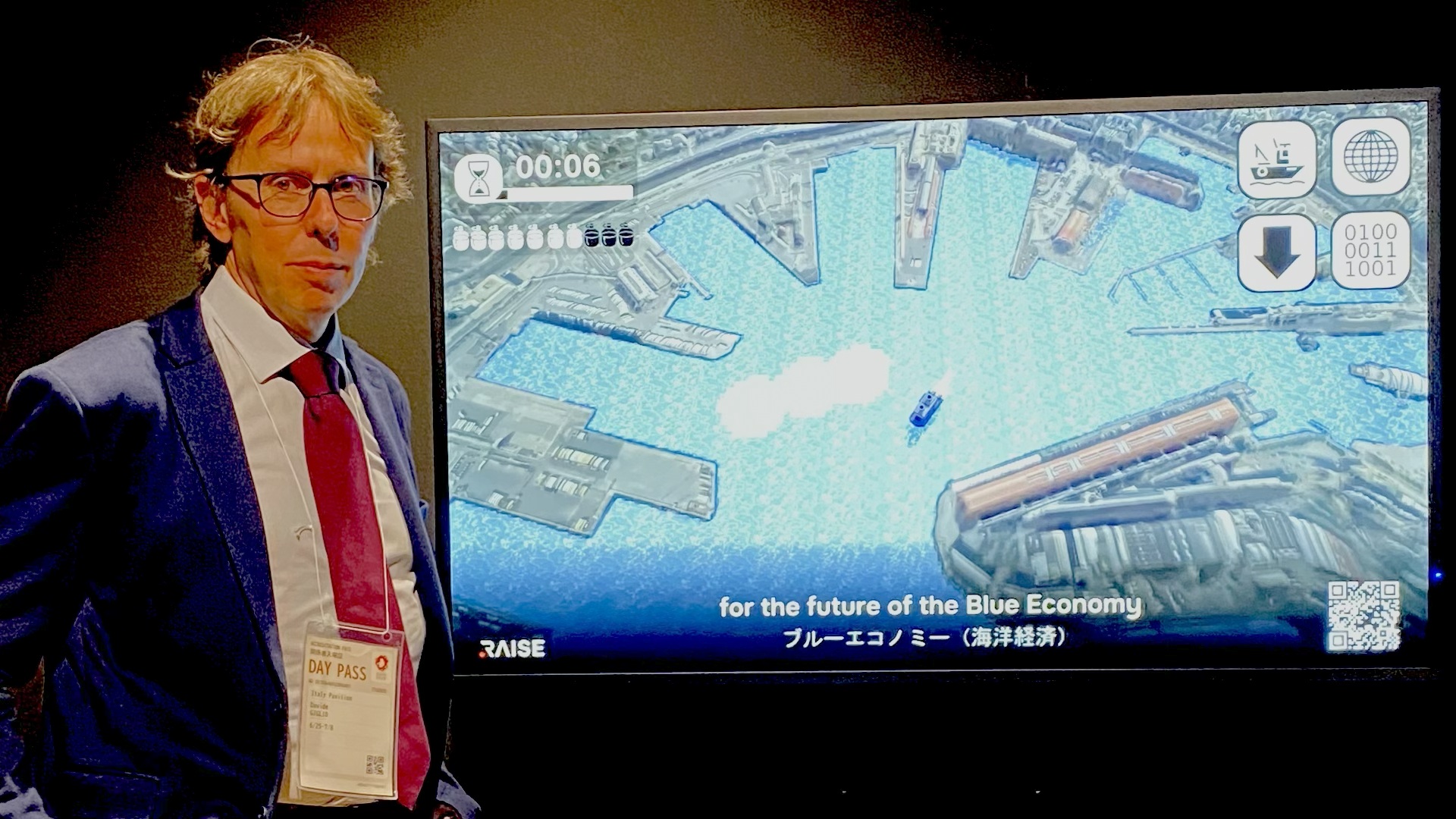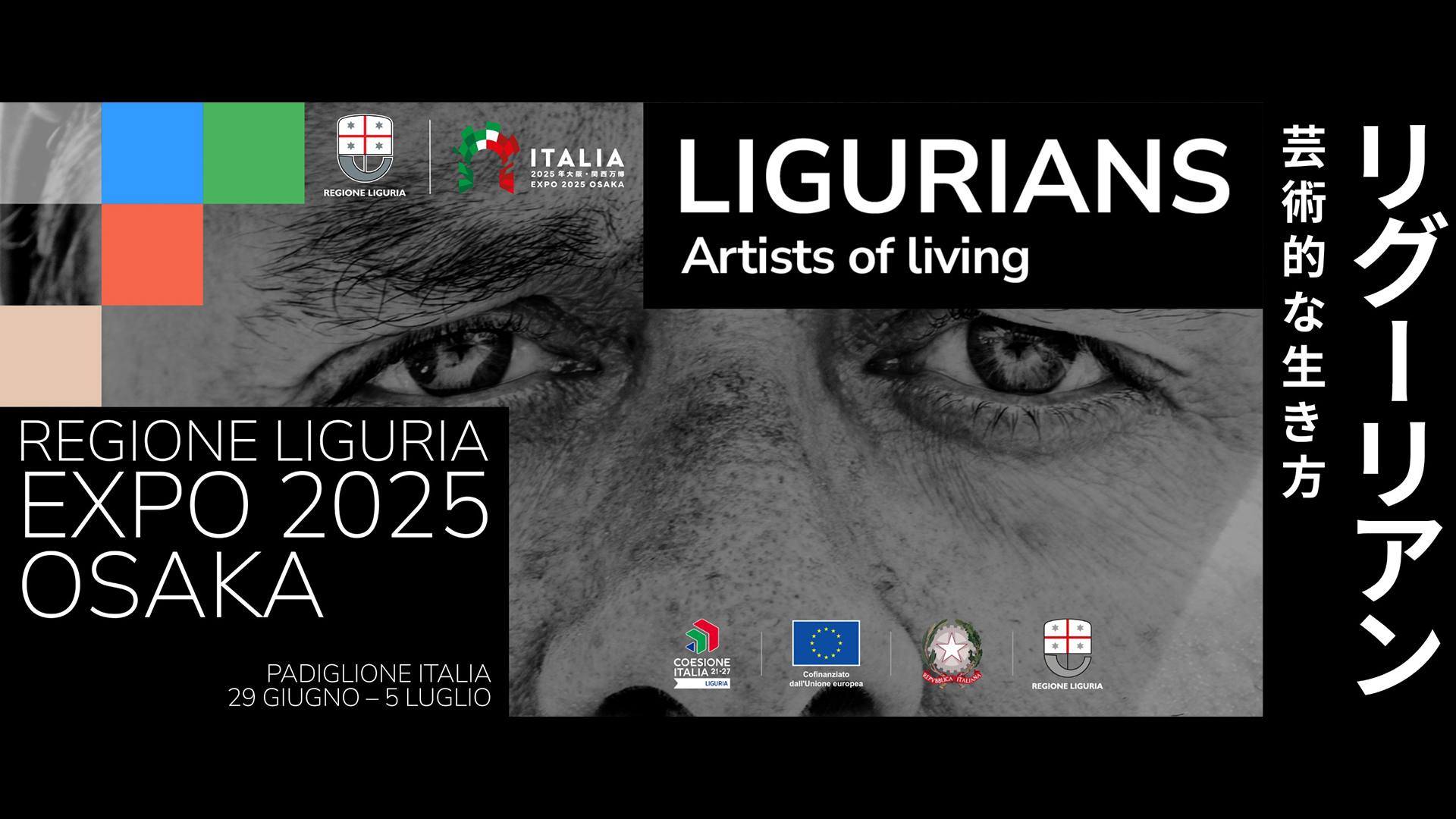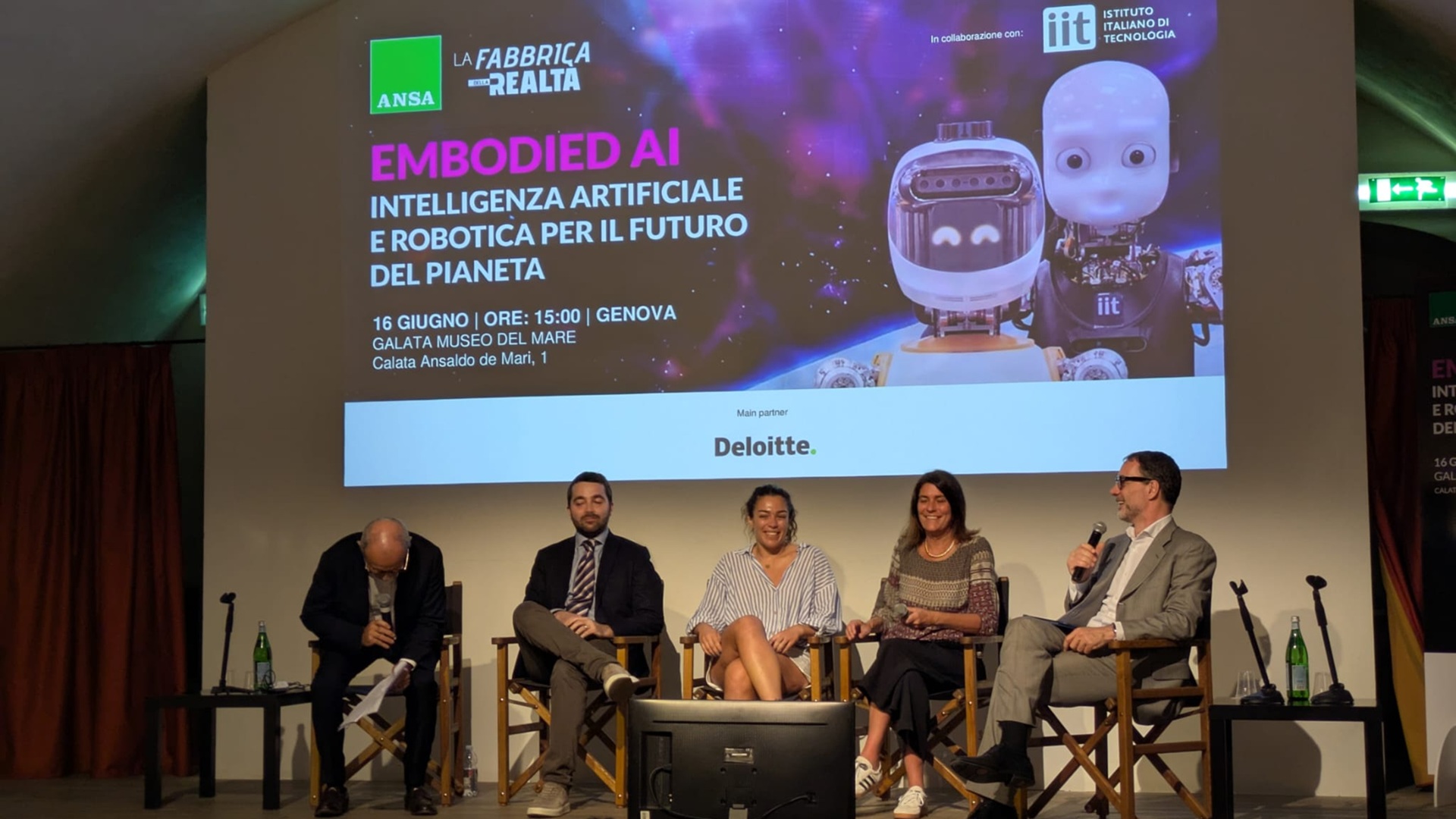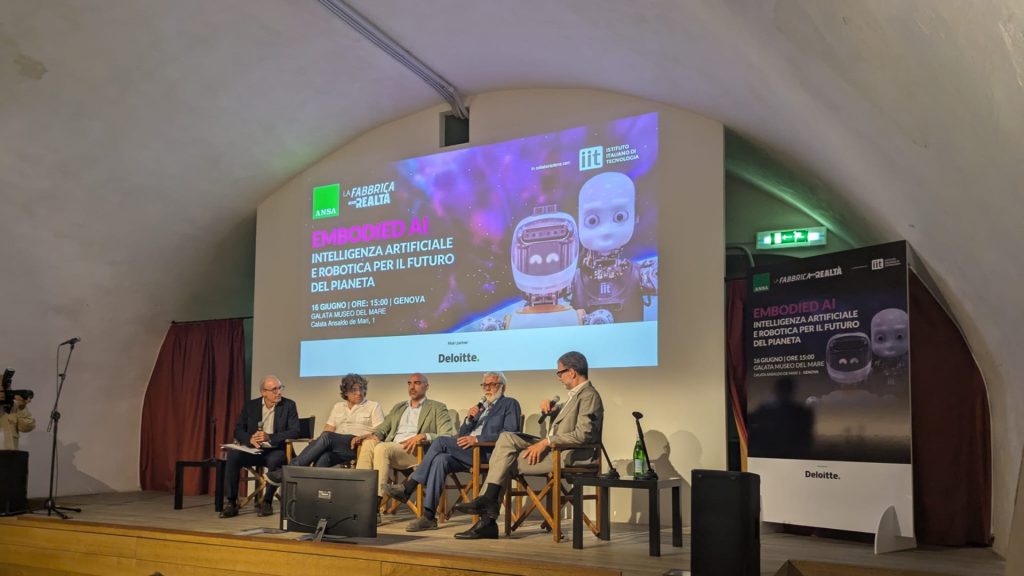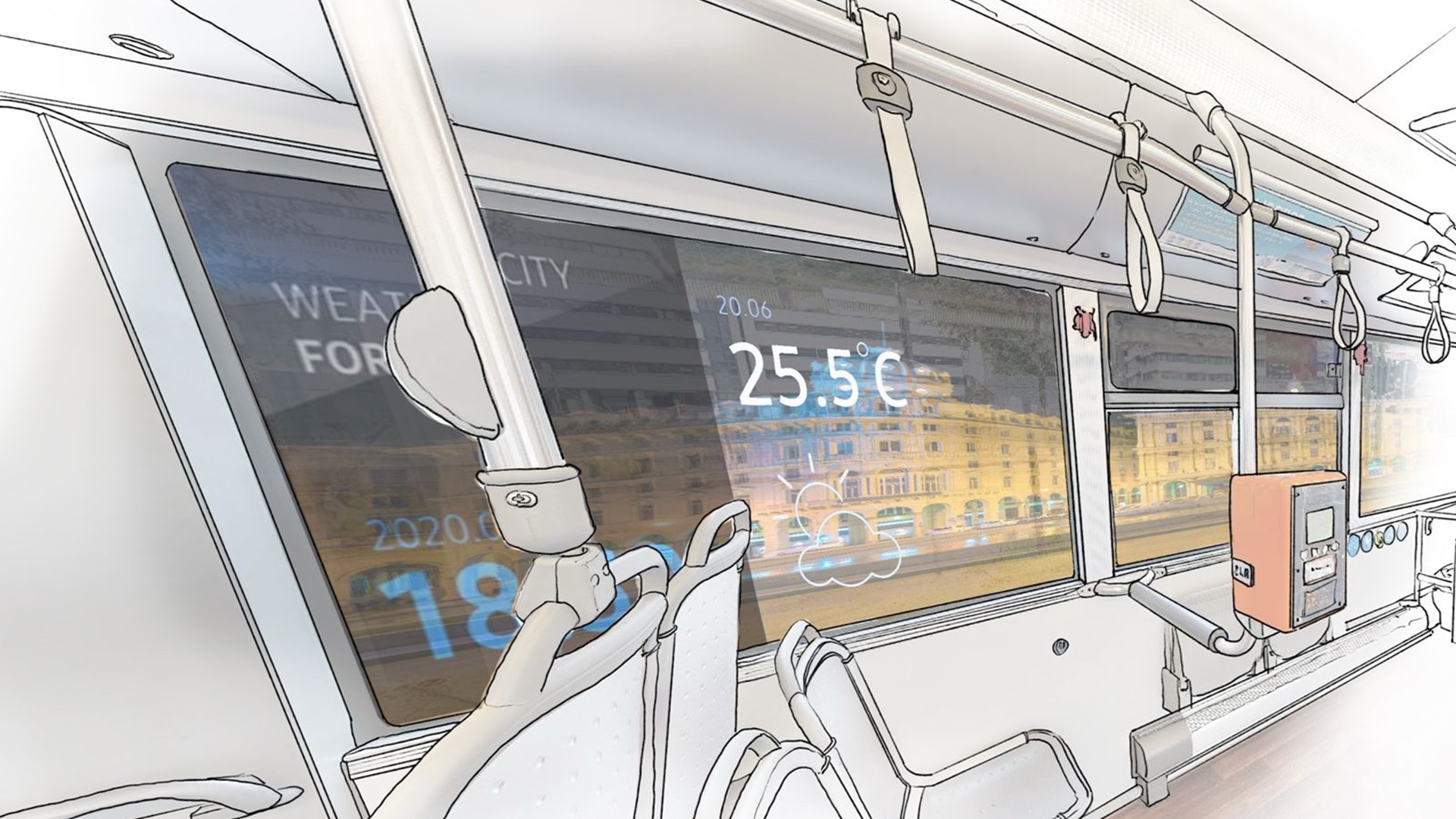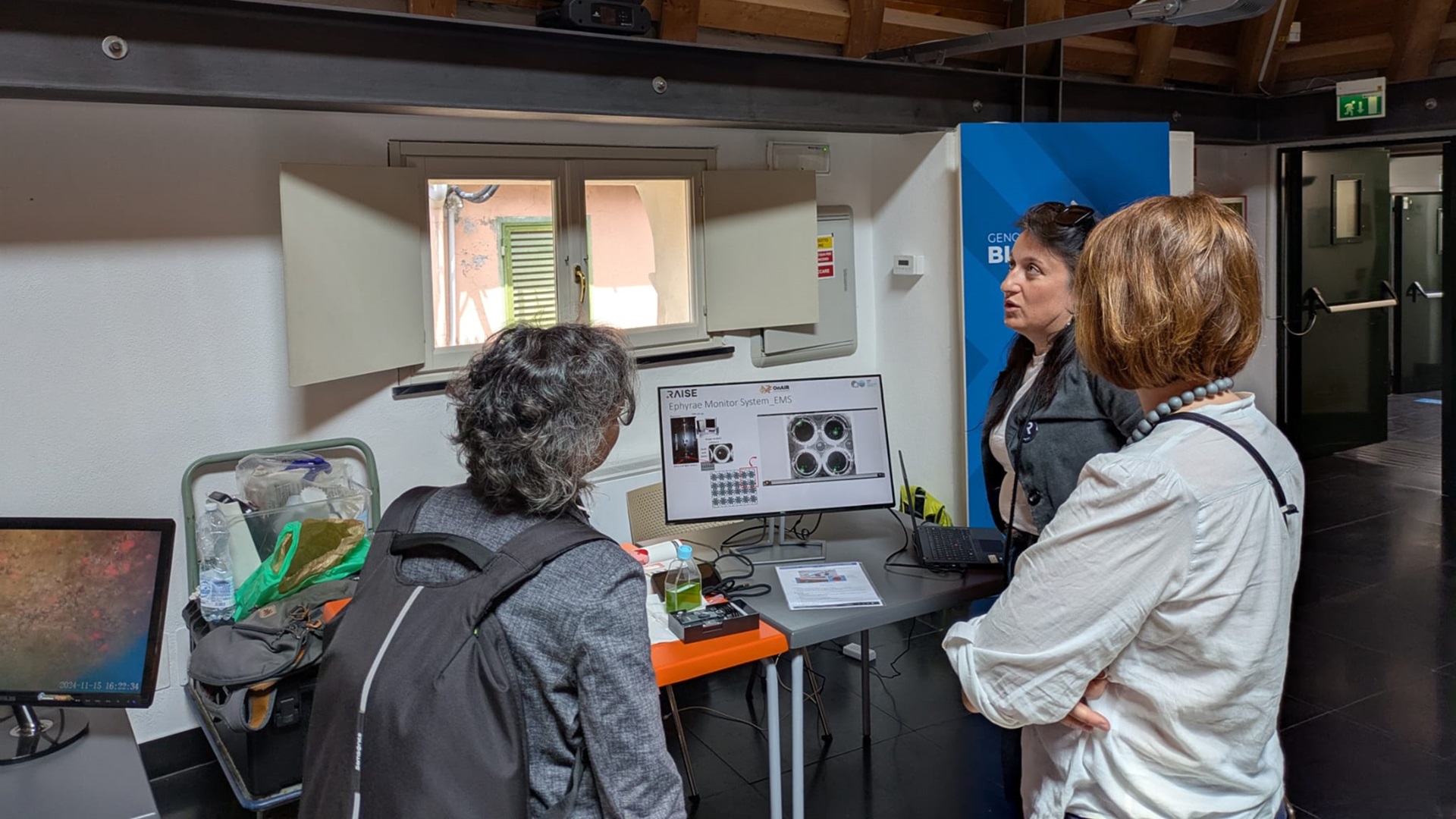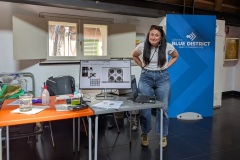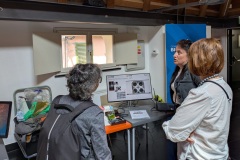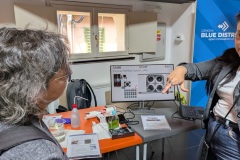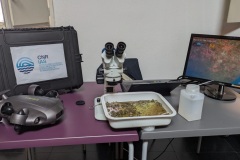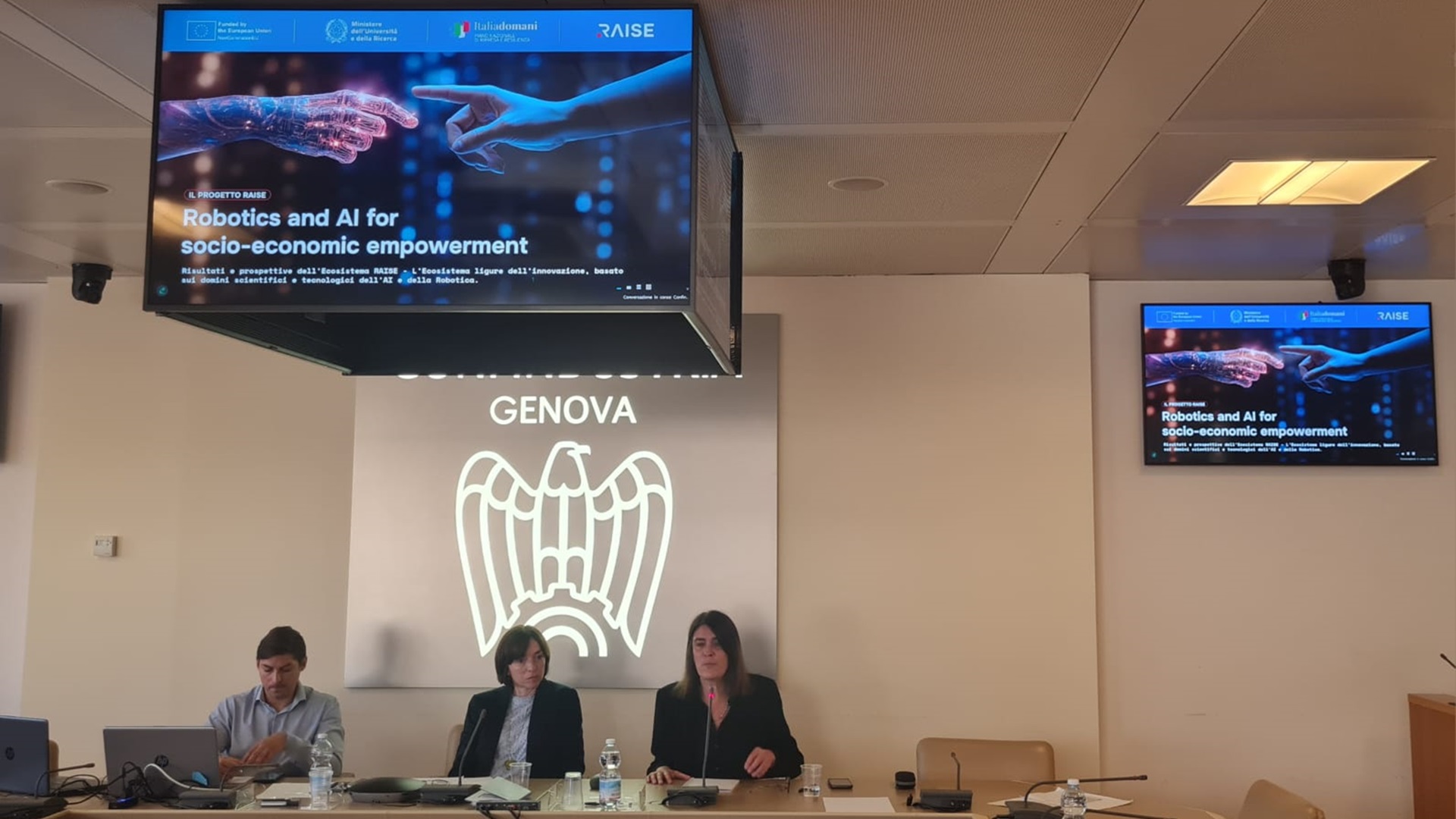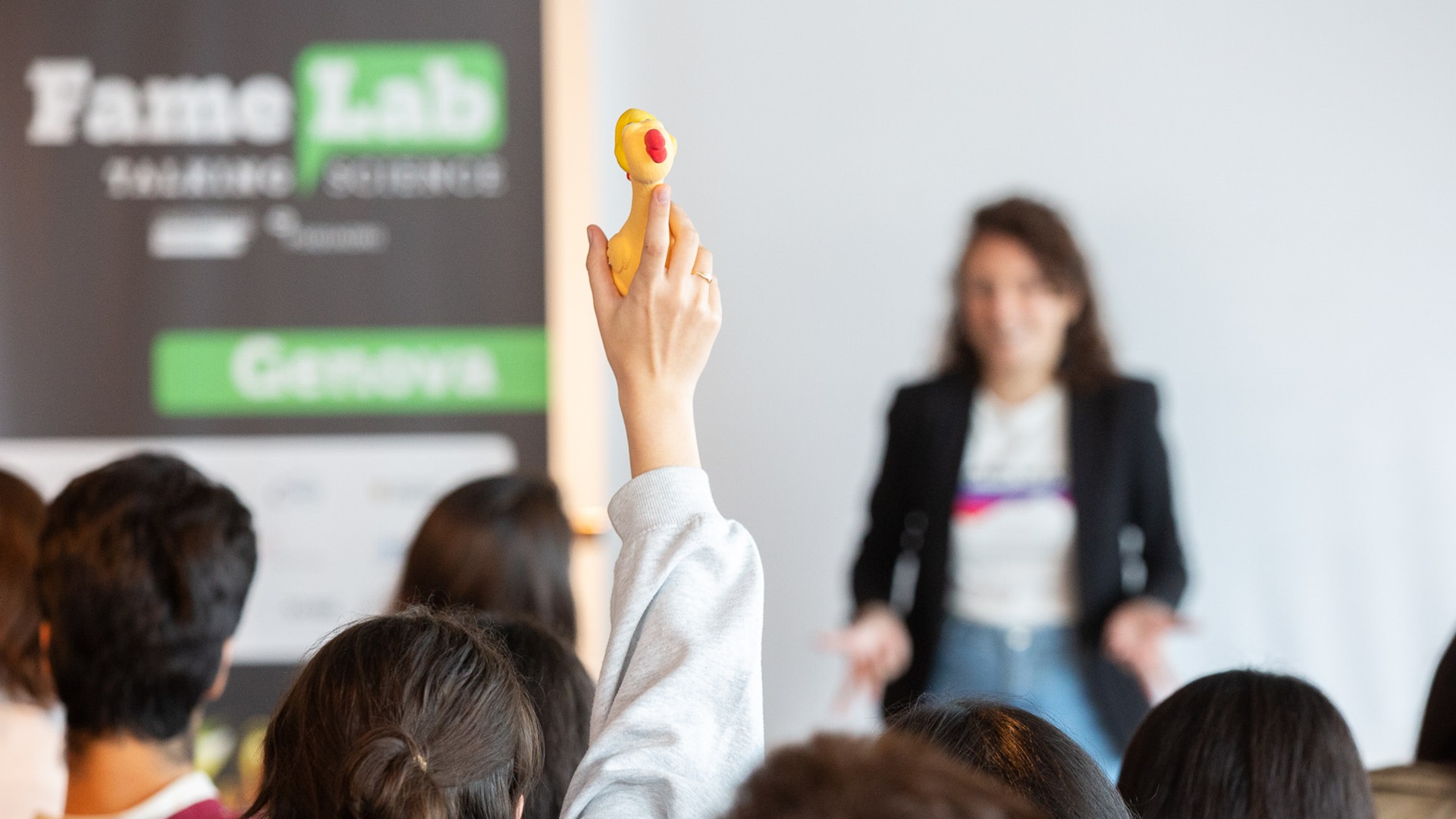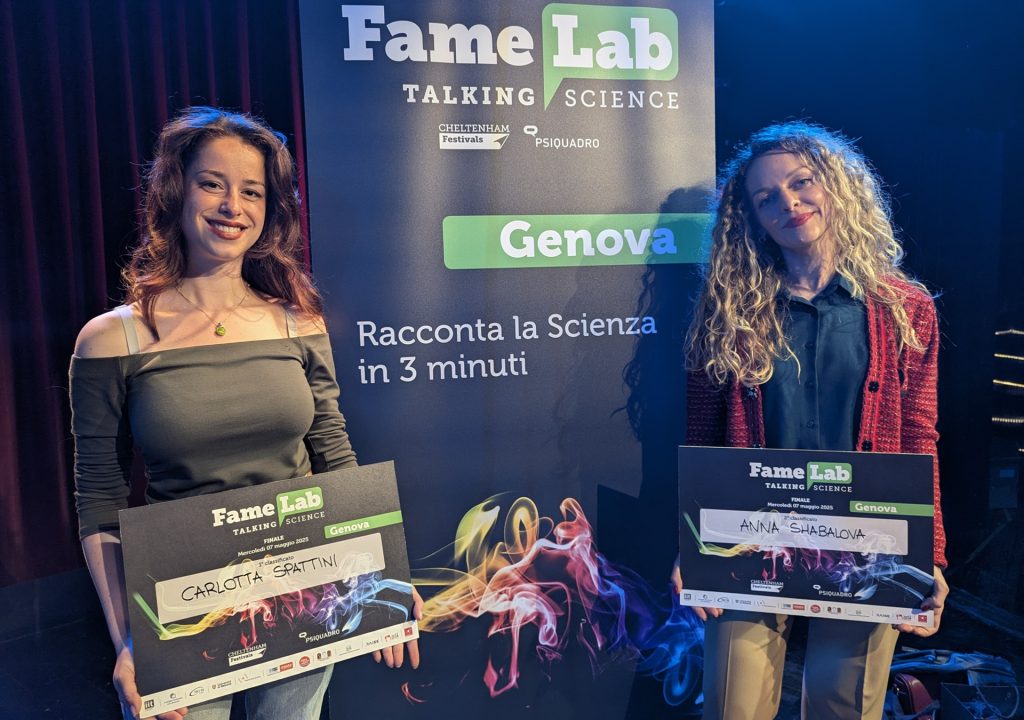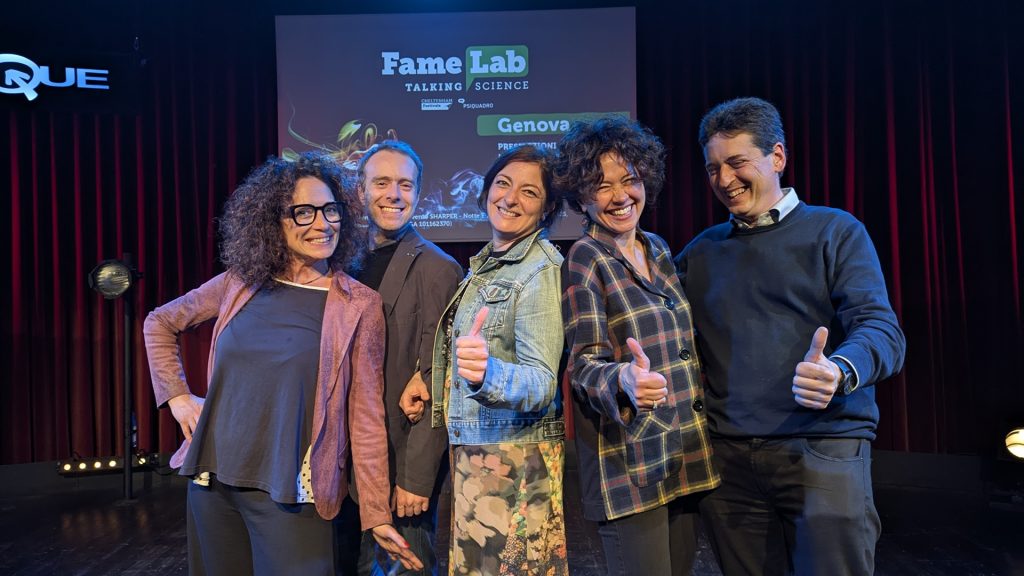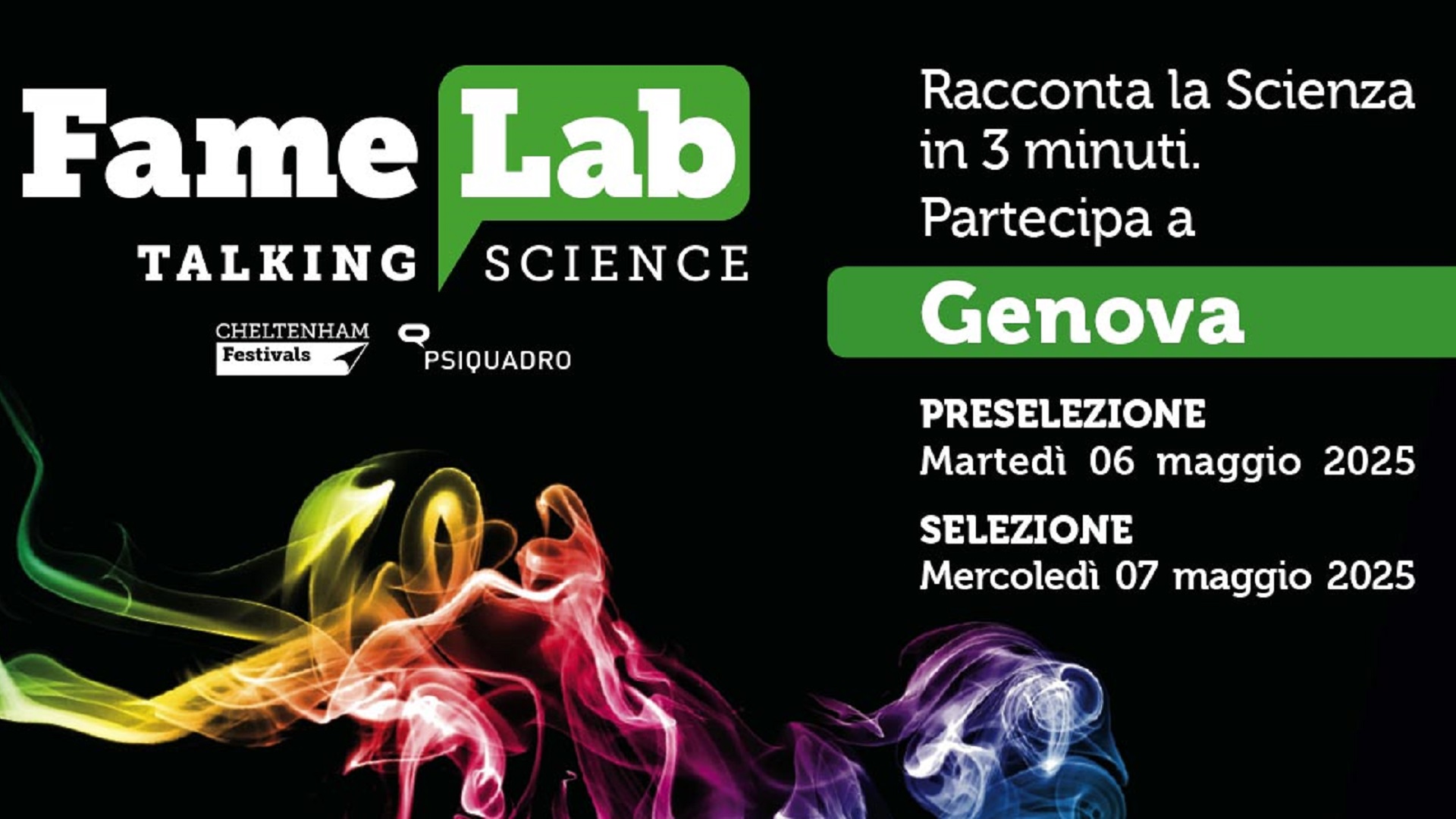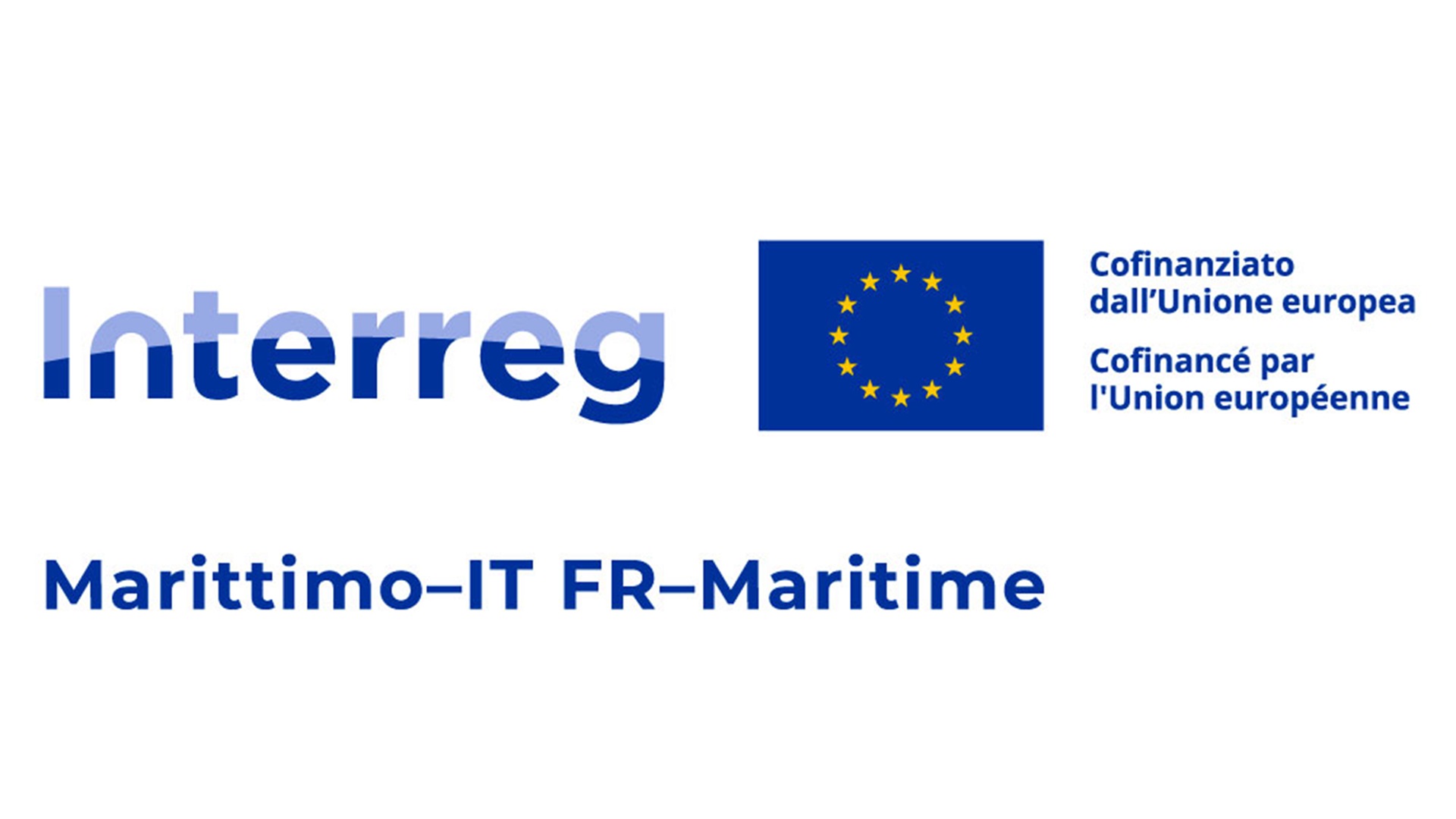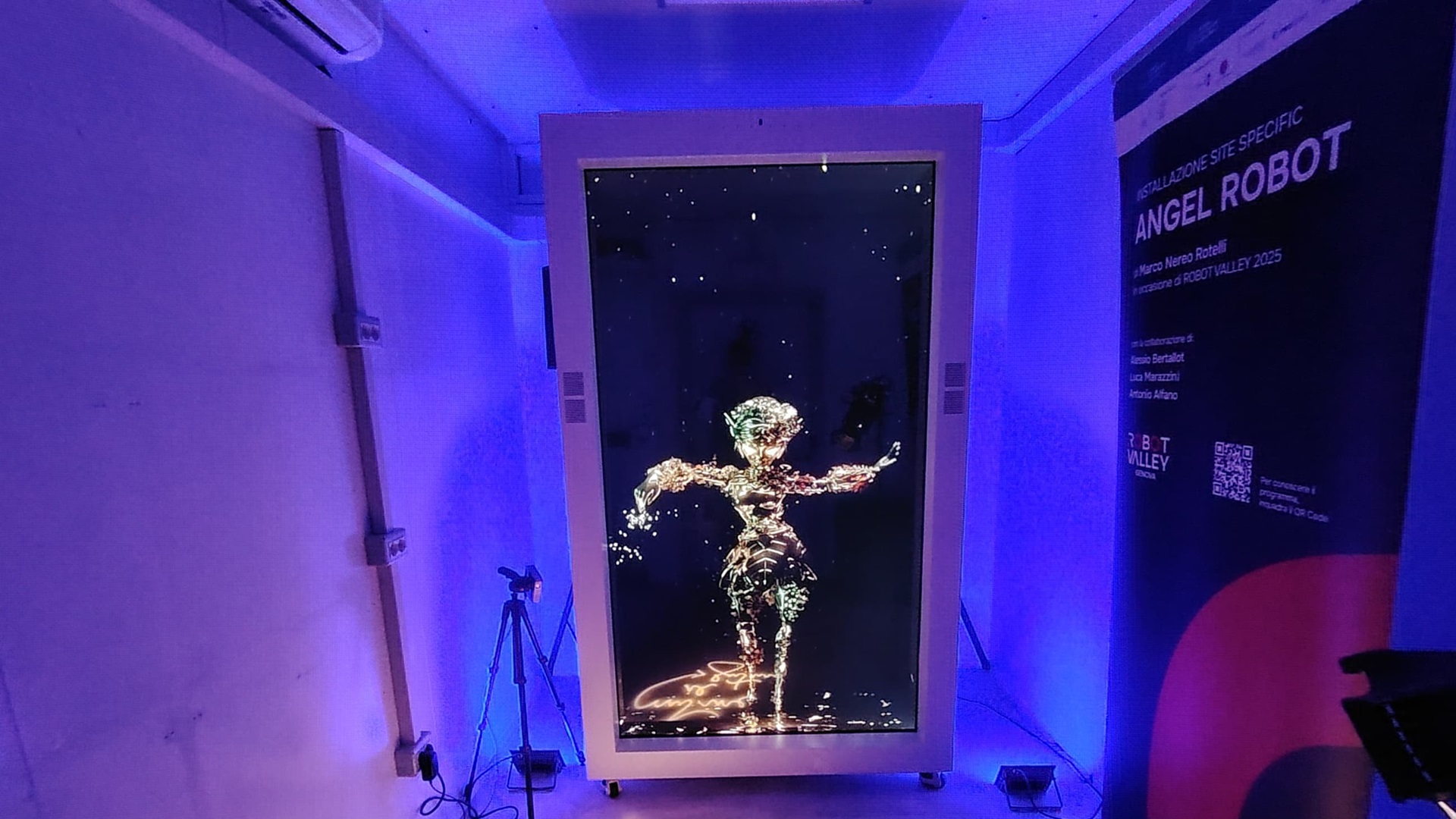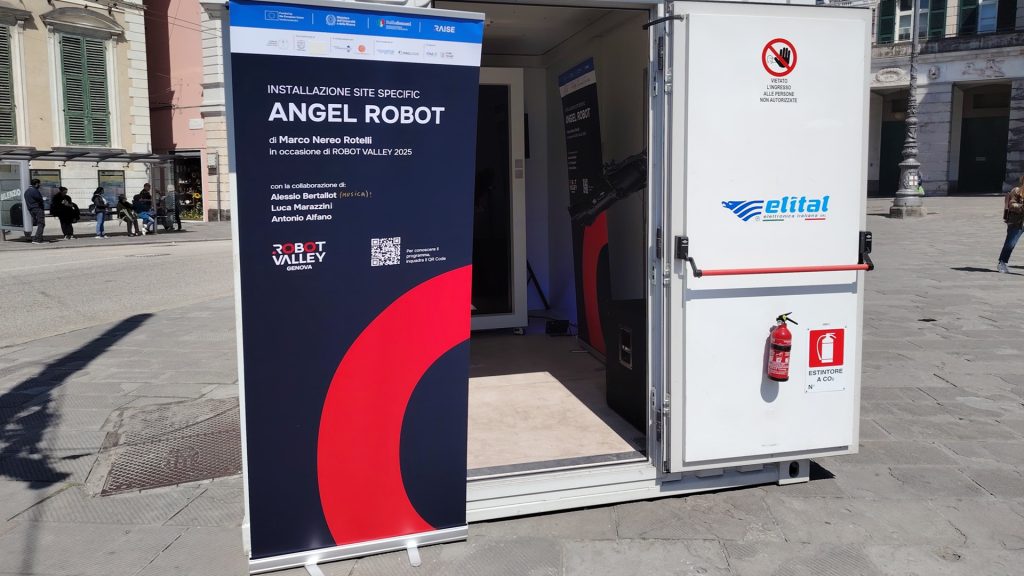Inside the Italian Pavilion, designed by architect Mario Cucinella – who studied at the University of Genoa – RAISE is featured in several ways and at various moments.
Throughout the week, during which Liguria takes center stage in the space dedicated to Italian regions, the four themes of the RAISE ecosystem will be presented to the public through a video titled EXPOsing RAISE, Present and future of Italian Robotics and AI.
The video is a multimedia summary that showcases the best innovations produced so far by RAISE, presented as a dialogue between two robots – one Italian-made, R1, and one Japanese, Pepper – symbolizing the encounter and exchange between Italian and Japanese culture and design.
These two humanoid robots are involved in several RAISE projects. In Osaka, they guide visitors through the Italian Pavilion on a journey through the activities and current results of the four scientific Spokes.
The theme of the inclusive smart city, developed by Spoke 1, is illustrated not only with 3D models of the Brignole and San Martino neighborhoods (CNR-IMATI), but also with video clips from the RAISE Village at the 2024 Science Festival, particularly showing visitors—children and seniors—interacting with technology (interactive tables, robots, etc.) as well as with RAISE researchers (UniGe).
The video also includes interfaces of innovative digital services and data management platforms for a smart, inclusive city, developed by ETT and UniGe, both for citizens and decision-makers.
Spoke 2 is represented with 3D models of organs, particularly the brain and kidney, which are already being used to enhance surgical procedures in hospitals that are part of the ecosystem. It also features advanced heart diagnostics (Esaote) and 3D-printed reproductions of the spine. Smart environments are also showcased, including FISM‘s smart kitchen, as well as the AIMOKA project’s sensorized glasses and insoles.
An iconic hug between Pepper and a UniGe researcher who programs the robot symbolizes the theme of robotics applied to personalized care—both at home and in hospital settings. R1 also features as a guide throughout the experience, and appears at the end, displaying a heart on its face.
Marine eco-robotics from Spoke 3 is illustrated through 4D and 5D models from the NEPTUNE™ project, including footage from the February “mission” in the Portofino Marine Protected Area, using ROVs and MYWAI’s platform. Other video segments show not only the beauty of the Ligurian sea and coastline, but also the famous Christ of the Abyss.
Eco-robotics applied to soil and the protection of cultural heritage is featured through 3D models of churches and video footage of field experiments with a tracked robot and drone in Aggio (Genoa), developed by UniGe in collaboration with IIT, ETT, and Info Solution. The latter also showcases another robot in a vineyard, performing pruning tasks with a robotic arm developed by the IIT team.
Environmental monitoring is represented with interfaces from ETT’s data management platform, used for marine and coastal data. Finally, 3D models of the Port of Genoa are used as elements in a serious game.
Spoke 4 contributes content focused on smart logistics at the port, safety (including the use of quadruped robots), and tourist engagement through social robots—Pepper and Alter Ego—deployed both at the port and in other locations such as the Genoa Aquarium, thanks to researchers from CNR, IIT, and UniGe. One futuristic image of a robot “camallo”(dockworker) was co-created with AI during the RAISE The Future project, in collaboration between ITD and IAS.
The video was made possible thanks to the collective effort of over 100 people from the RAISE ecosystem, and features underwater robots, quadrupeds, humanoids, and drones.
Spoke 5 coordinated the production of the video, including scriptwriting, filming, and editing (in particular with CNR and ETT).
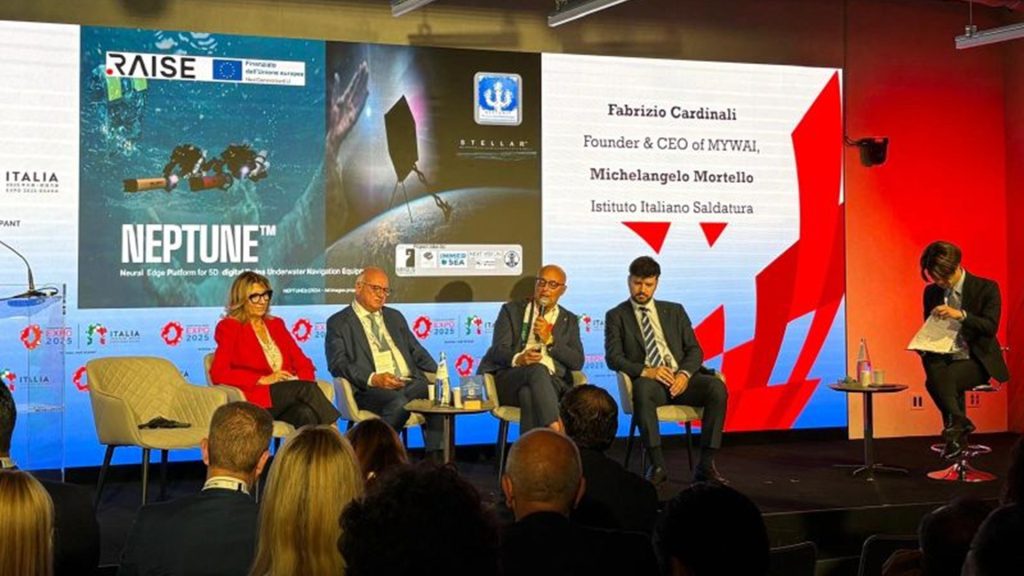
The Ligurian company MYWAI, lead partner of the NEPTUNE™ project and winner of a cascade funding call from Spoke 5, contributed not only to the video’s content but also presented its progress and results within Spoke 3, in collaboration with IIS – Italian Institute of Welding, during the Blue Tech Revolution event.
On July 1, the RAISE ecosystem was officially presented by Renata Paola Dameri (UniGe, Spokes 1 and 5) and Laura Gaggero (UniGe, Spoke 5) in the Auditorium of the Pavilion, during a day dedicated to the University of Genoa, research excellence, and academic exchange with Japanese universities.
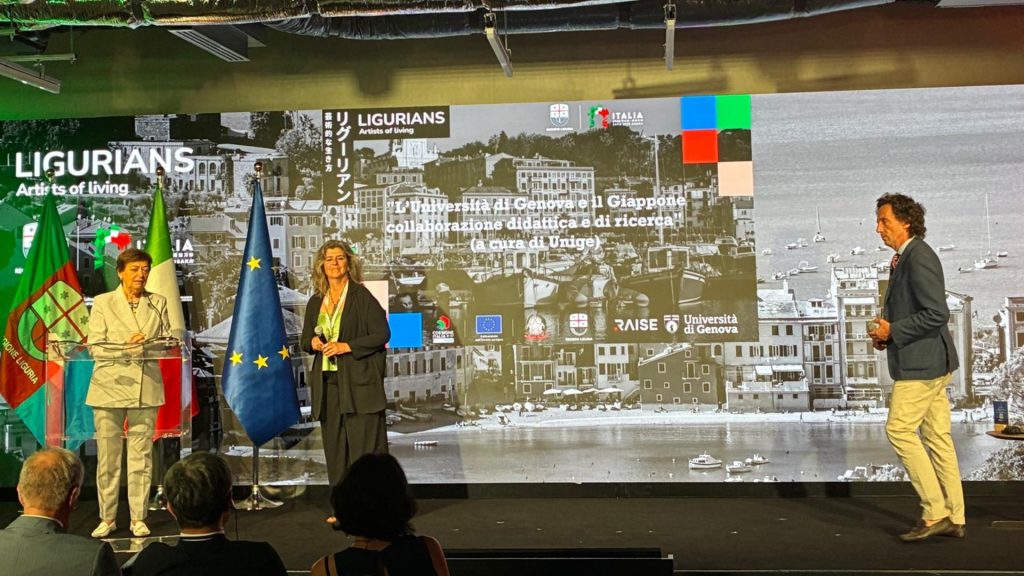
Thus, innovation through robotics and AI becomes an expression of Ligurian know-how, in dialogue with other forms of expertise, through multimedia presentations and in-person events inside the Italian Pavilion.
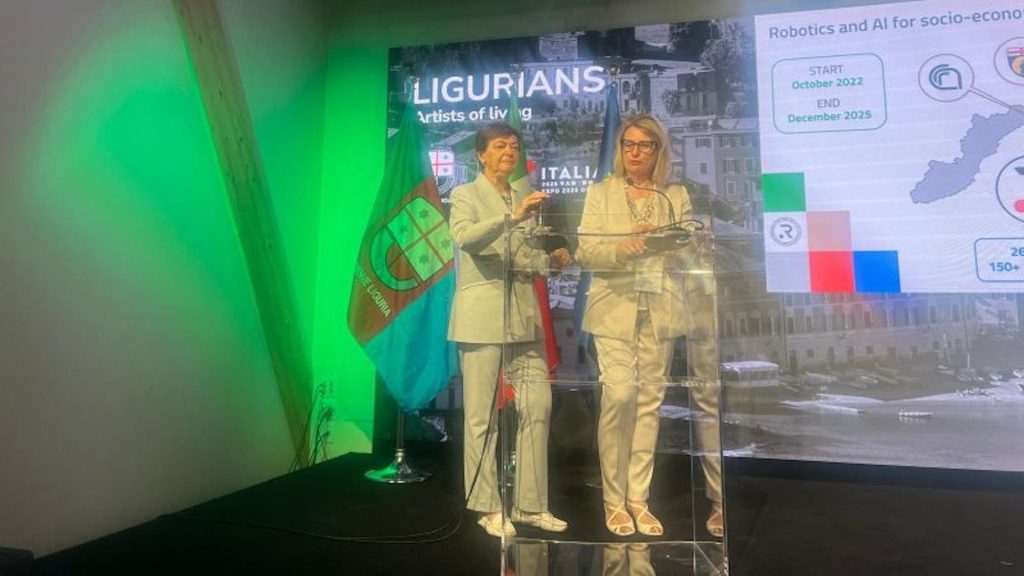
Cover Image
Davide Giglio (UniGe, Spoke 4) next to the monitor playing the video about RAISE
Author: UniGe and RAISE
Credits: UniGe and RAISE

